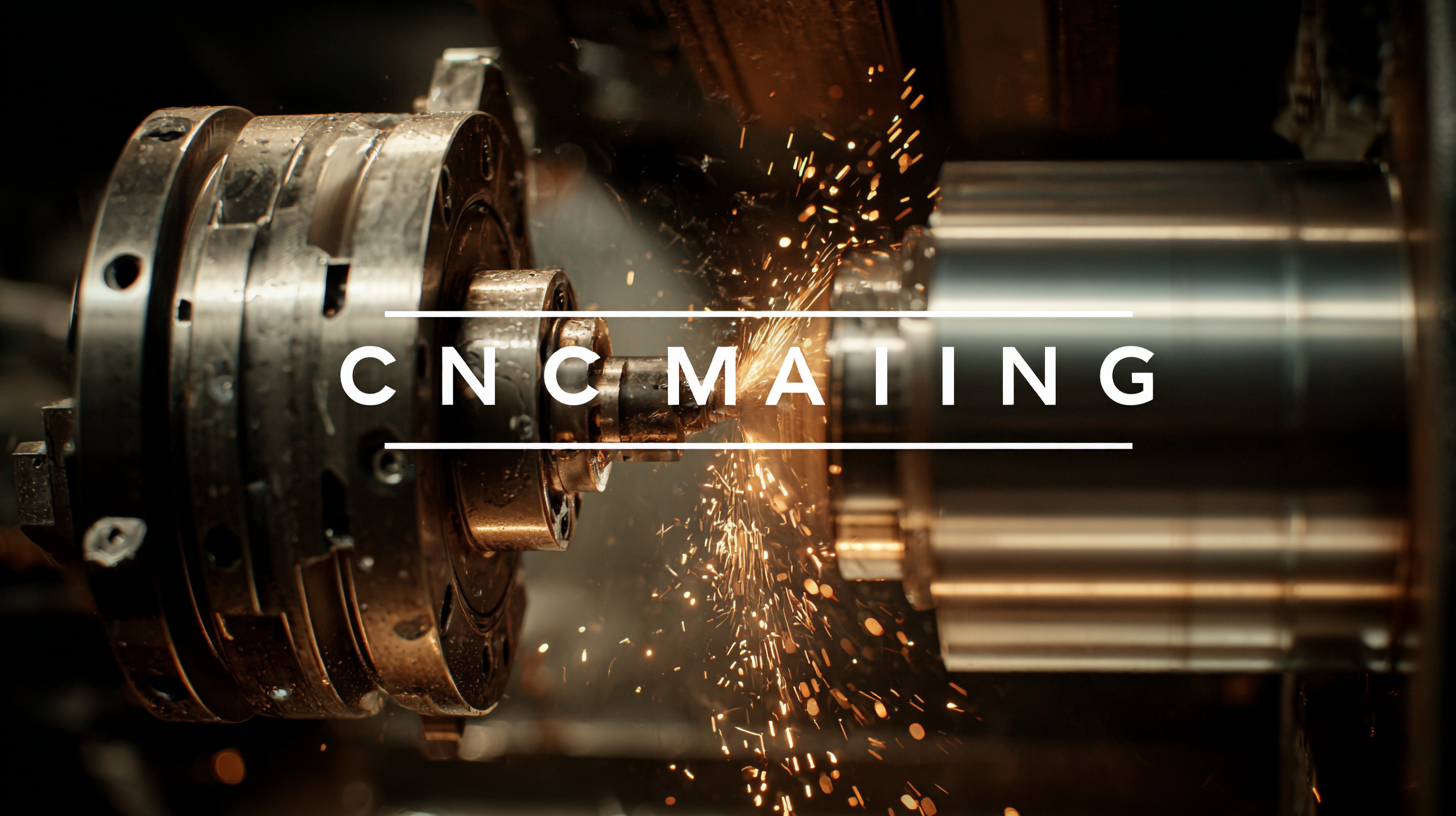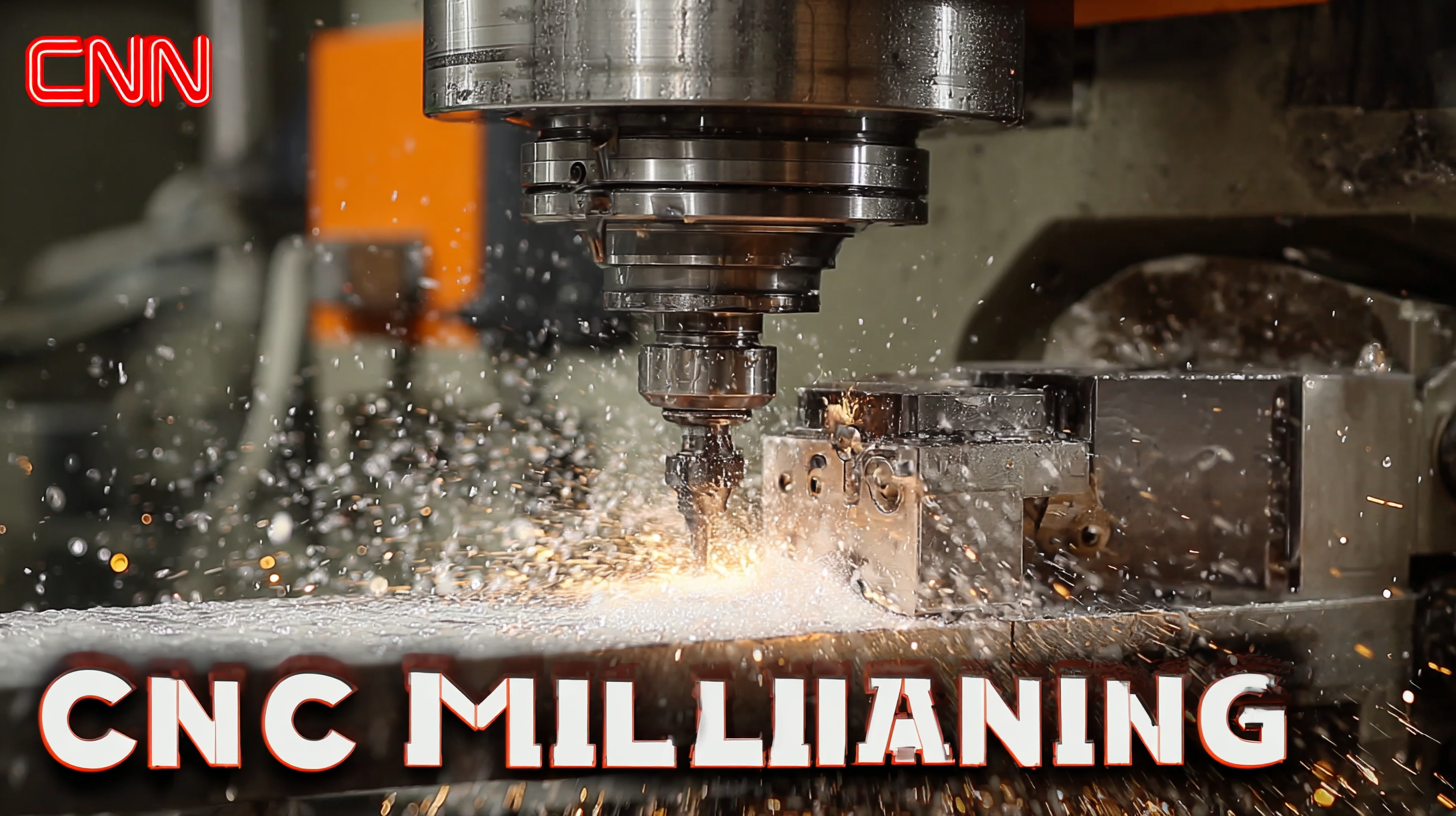Exploring the Future of Precision Manufacturing: Best CNC Lathe and Milling Machines for Global Buyers
In the rapidly evolving landscape of precision manufacturing, the significance of advanced CNC lathe and milling machines cannot be overstated. As global buyers seek to enhance their production capabilities, understanding the intricacies of these machines becomes essential. The demand for precise and efficient machining is pushing manufacturers to invest in cutting-edge technology, driving innovation across various industries. However, navigating the complexities of international trade, including import and export certifications, is crucial for ensuring compliance and maintaining high standards. This blog will explore the best CNC lathe and milling machines available on the market today, providing insights for buyers eager to optimize their operations while adhering to industry regulations. With the right machinery and knowledge, businesses can position themselves for success in an increasingly competitive global arena.

Future Innovations in CNC Lathe Technologies for Precision Manufacturing
The landscape of precision manufacturing is entering an exciting phase with significant advancements in CNC lathe technologies. Particularly, the integration of artificial intelligence in CNC machining is poised to revolutionize production processes. As companies aim for higher precision and efficiency, AI-driven tools are becoming essential, aiding in chip control and optimizing high-volume outputs. This shift not only enhances operational capabilities but also minimizes production costs, allowing manufacturers to remain competitive in a rapidly evolving market.
According to projections, the global CNC machine market is expected to grow from approximately $101.22 billion in 2025 to around $195.59 billion by 2032, reflecting a robust annual growth rate of 9.9%. Key industry players are focusing on innovative tools and software combinations to meet this growing demand.
For instance, the advancements showcased at major manufacturing expos indicate a strong trend towards next-generation CNC machines that leverage AI for enhanced performance. As manufacturers adapt to these technological innovations, the future of precision manufacturing looks promising, driving a new era of productivity and precision.
Top CNC Milling Machines: Features That Attract Global Buyers
 When it comes to purchasing CNC milling machines, global buyers often look for features that enhance efficiency, precision, and ease of use. The best CNC milling machines are equipped with advanced technology, such as high-resolution servo motors, which ensure accurate and consistent machining. Buyers should also consider machines with user-friendly interfaces that simplify programming and operation, making them accessible for operators of varying skill levels.
When it comes to purchasing CNC milling machines, global buyers often look for features that enhance efficiency, precision, and ease of use. The best CNC milling machines are equipped with advanced technology, such as high-resolution servo motors, which ensure accurate and consistent machining. Buyers should also consider machines with user-friendly interfaces that simplify programming and operation, making them accessible for operators of varying skill levels.
Additionally, the material compatibility of CNC milling machines is a crucial feature to evaluate. Buyers should opt for machines that can handle a wide range of materials, from aluminum to complex composites. This versatility allows manufacturers to expand their capabilities without investing in multiple machines.
Tips: When selecting a CNC milling machine, pay attention to support and maintenance services offered by the manufacturer. A strong service network can make a significant difference in reducing downtime. Furthermore, always check for customer reviews and case studies to gauge real-world performance and reliability before making a purchase.
Comparative Analysis of Leading CNC Machines in the Market
The CNC machines market is witnessing significant growth, driven by the increasing demand for high-precision manufacturing processes. With projections indicating a compound annual growth rate (CAGR) of over 10.3% from 2025 to 2032, the market is expected to surpass USD 161.27 billion by 2032. This boom is largely attributed to advancements in technology and a rising trend towards automation and AI integration within manufacturing systems, leading to improved efficiency and competitiveness.
In particular, the CNC lathe and milling machines have emerged as essential tools for global manufacturers seeking to enhance their production capabilities. The market for CNC routers is also on the rise, estimated to reach USD 691 million in 2023, with a steady growth rate expected in the coming years. This comparative analysis of leading CNC machines emphasizes the necessity for buyers to consider not only initial costs but also the long-term benefits of investing in advanced machinery that offers precision, speed, and versatility in operations. As manufacturers worldwide adapt to these evolving trends, the selection of reliable CNC machines will play a crucial role in their success.
Choosing the Right CNC Machine: Factors That Influence Buyer Decisions
When choosing the right CNC machine, buyers must consider several key factors that influence their decisions. One of the most important is the machine's precision and capability to produce complex geometries. Precision manufacturing demands equipment that can maintain tight tolerances and consistent quality, which is essential for industries such as aerospace and automotive where even the smallest error can lead to significant issues. Buyers should assess the machine's specifications, including spindle speed, feed rate, and rigidity, to ensure it meets their production needs.
Another crucial factor is the level of automation and ease of use. Modern CNC machines often come equipped with advanced features such as user-friendly interfaces, programming software, and automated tool changers. For buyers, particularly those in small to medium enterprises, investing in equipment that minimizes manual intervention can lead to increased productivity and reduced labor costs. Additionally, service and support provided by manufacturers play a vital role; a reliable support system is essential for minimizing downtime and ensuring optimal machine performance, making it a key consideration when selecting a CNC lathe or milling machine.
Sustainable Practices in Precision Manufacturing: Trends and Solutions
 Sustainable practices in precision manufacturing are increasingly becoming a necessity as industries adapt to global environmental challenges. The precision cleaning solutions market, projected to reach USD 9.85 billion by 2030, highlights the growing recognition of sustainability within industrial processes. Companies are now investing in environmentally friendly cleaning technologies that not only enhance efficiency but also minimize their ecological footprint. As the demand for cleaner production processes rises, manufacturers are exploring innovative solutions to integrate sustainability into their operations.
Sustainable practices in precision manufacturing are increasingly becoming a necessity as industries adapt to global environmental challenges. The precision cleaning solutions market, projected to reach USD 9.85 billion by 2030, highlights the growing recognition of sustainability within industrial processes. Companies are now investing in environmentally friendly cleaning technologies that not only enhance efficiency but also minimize their ecological footprint. As the demand for cleaner production processes rises, manufacturers are exploring innovative solutions to integrate sustainability into their operations.
The adoption of precision agriculture techniques is another significant trend that complements sustainable practices in manufacturing. In Scotland, for instance, farmers are leveraging precision agriculture to enhance yield while simultaneously addressing climate adaptation challenges. This movement illustrates a shift towards smarter farming practices, promoting resource optimization and reducing waste. The incorporation of advanced technologies into agriculture not only supports sustainable farming but also contributes to the overall efficiency of food systems. As we look ahead to 2024 and beyond, the collaboration between technology providers and agricultural practitioners is essential for fostering an ecosystem that prioritizes sustainability in both production and manufacturing processes.
